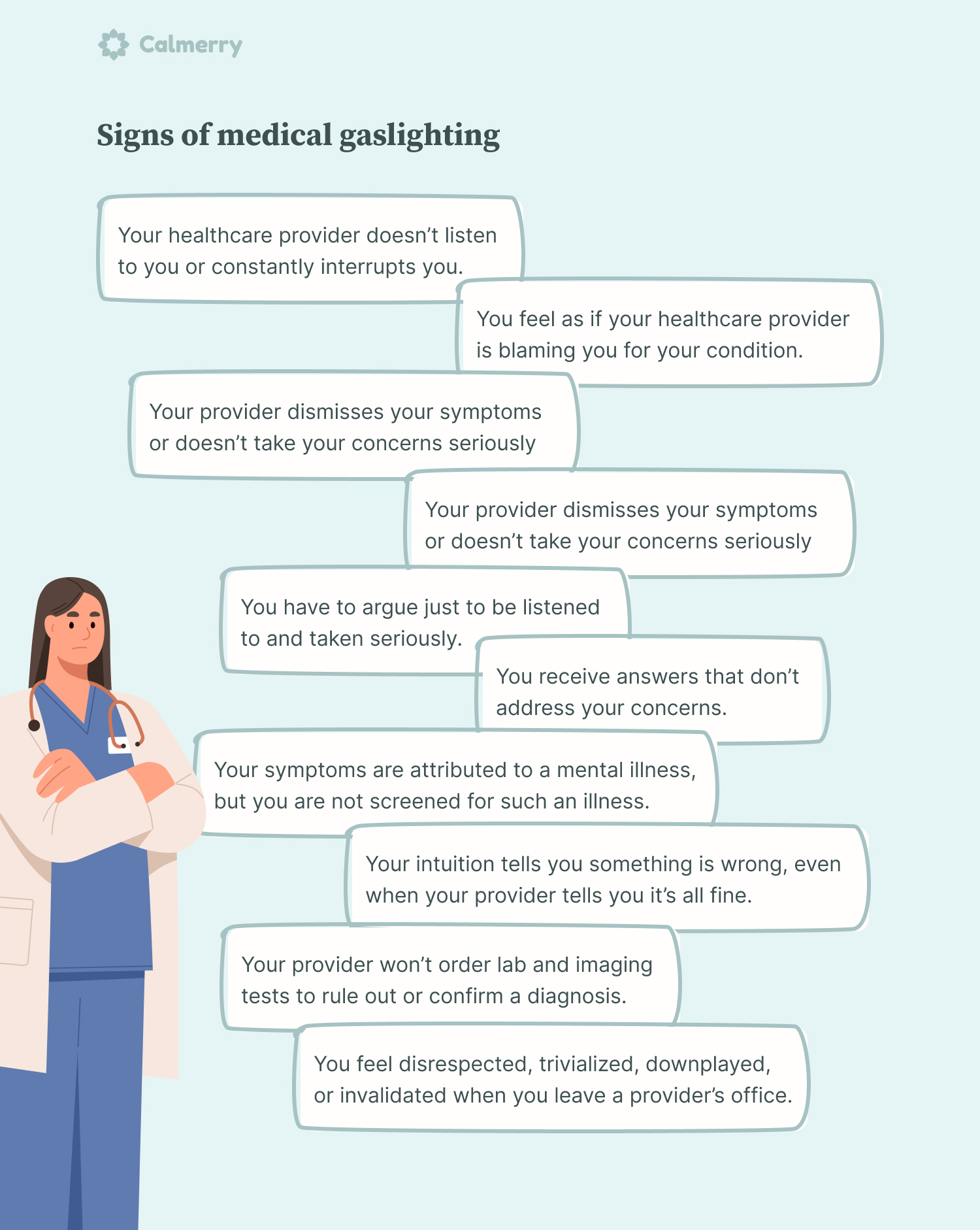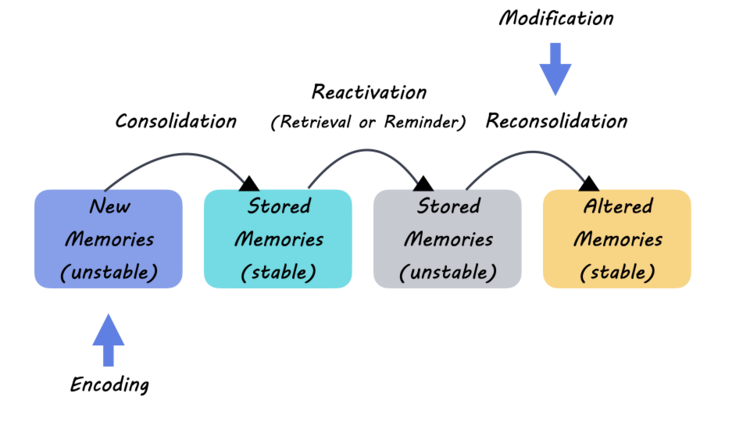Medical gaslighting is an insidious issue that affects the doctor-patient relationship, leading to a troubling wave of healing invalidation faced by many patients. This phenomenon often arises when physicians dismiss patients’ symptoms or suggest that their conditions might be mentally fabricated, particularly in cases of hard-to-diagnose illnesses. The implications for mental health in healthcare are significant, as individuals may leave appointments feeling unheard and invalidated. Moreover, the rising rates of physician burnout are compounding the issue, creating an environment where time-starved doctors struggle to connect empathetically with their patients. Understanding and addressing medical gaslighting is crucial to fostering a more compassionate healthcare experience that prioritizes patient voices and promotes collaborative healing.
The term “medical invalidation” has surfaced as an alternative way to describe the experience of patients whose concerns are overlooked or minimized by healthcare providers. In today’s fast-paced medical environment, many practitioners may unintentionally contribute to the gaslighting phenomenon due to excessive pressures to see more patients in less time. This dynamic not only strains the doctor-patient relationship but can also exacerbate feelings of isolation among patients grappling with complex, often invisible health issues. By broadening our understanding beyond just gaslighting in medicine, we can begin to recognize the nuanced ways in which patient experiences are invalidated, paving the way for improved communication and understanding in clinical settings.
Understanding Medical Gaslighting
Medical gaslighting is a term that has gained considerable traction in contemporary healthcare discussions, particularly as patients increasingly report feeling dismissed or invalidated by their providers. This phenomenon often occurs when physicians struggle to identify the biological causes of symptoms, leading to statements that suggest the issues may be psychological or ‘all in the patient’s head.’ Such responses can deeply erode trust in the doctor-patient relationship, heightening already present feelings of anxiety or confusion in patients suffering from complex conditions like long COVID or irritable bowel syndrome.
However, it is crucial to acknowledge that not all instances of medical gaslighting stem from malicious intent. Research led by psychologist Alexandra Fuss suggests that many healthcare professionals may unintentionally engage in this behavior due to overwhelming caseload pressures and the demands of bureaucracy in modern medicine. Rather than labeling these moments as gaslighting, it might be more constructive to refer to them as ‘medical invalidation,’ enabling a more compassionate understanding of the systemic issues at play.
The Impact of Physician Burnout on Patient Care
Physician burnout has become an epidemic within the healthcare industry, significantly affecting the quality of patient care. Physicians often find themselves overwhelmed by heavy caseloads, excessive paperwork, and the pressure to deliver quick results. With burnout rates exceeding 50% among physicians, many practitioners might prioritize speed over thoroughness during patient interactions. This environment can create a scenario where patients feel their symptoms are not adequately addressed, resulting in feelings of frustration and invalidation.
To alleviate the impact of burnout, healthcare systems must prioritize the well-being of their staff, establishing work-life balance as a core value within their practice. By reducing administrative burdens and fostering environments that allow for meaningful doctor-patient interactions, healthcare facilities can reduce the risk of invalidation and improve overall patient outcomes. Increased emphasis on mental health in healthcare, for both physicians and patients alike, can lead to better communication and stronger therapeutic relationships.
Towards a Compassionate Doctor-Patient Relationship
Building a compassionate doctor-patient relationship is essential for effective healing and recovery. When patients feel heard and validated, they are more likely to engage in their own care actively. Creating an atmosphere where patients can express their struggles without fear of dismissal requires a shift in the medical community’s approach. Doctors must be trained not only in medical knowledge but also in empathetic communication and active listening, enabling them to comprehend their patients’ experiences fully.
Moreover, understanding the emotional toll that medical interactions can take on patients is vital for healing. When physicians take the time to assure patients that their concerns are valid, even in the absence of a clear diagnosis, they can foster stronger relationships built on trust. This recognition of emotional health within healthcare settings not only supports patient recovery but also diminishes the likelihood of feelings of gaslighting or medical invalidation.
The Role of Healing Invalidation in Patient Experiences
Healing invalidation can be a significant barrier to patient well-being, where medical professionals unintentionally dismiss patients’ concerns, leading them to feel unheard. This can happen due to various factors, including time constraints, heavy workloads, and systemic inefficiencies within healthcare. When a patient presents a complex symptom that lacks a straightforward diagnostic path, and a doctor responds with skepticism or minimized concern, it can leave the patient feeling isolated and questioning their own experiences.
To combat healing invalidation, a paradigm shift in medical education and practice is essential. Training healthcare providers to recognize signs of emotional distress and helping them develop skills for validating patient experiences can significantly enhance patient interactions. By emphasizing the importance of empathy in medical care, healthcare systems can create environments where patients feel empowered to voice their concerns without fear of invalidation.
Addressing Gaslighting in Medicine: A Call for Systemic Change
Addressing gaslighting in medicine requires systemic change, acknowledging that the pressures healthcare providers face can inadvertently contribute to this detrimental phenomenon. The culture of productivity and efficiency must evolve to facilitate more personalized patient interactions. By reforming organizational policies that prioritize time with patients over sheer numbers, healthcare systems can begin to alleviate the systemic pressures that lead to inadequate validation of patient experiences.
Furthermore, encouraging open discussions about the pressures faced by practitioners can help destigmatize the struggles they encounter. When practitioners are supported in their daily challenges and have resources to manage their mental health, they can provide better care. This circle of support not only benefits healthcare professionals but ultimately enriches patient interactions, leading to a higher standard of empathetic and individualized care.
Building Trust in the Doctor-Patient Relationship
Trust is the cornerstone of the doctor-patient relationship, yet instances of medical gaslighting can severely undermine that trust. Patients need to feel confident that their doctors understand and respect their concerns and experiences. In an era where patients often research their symptoms and conditions online, healthcare providers must validate patients’ knowledge and perspectives while guiding them through their care.
Practitioners can cultivate trust by adopting an open approach to communication, encouraging patients to express their feelings and doubts about their symptoms freely. When doctors acknowledge the complexity of medical issues and communicate openly about the limitations of current knowledge, it signals to patients that their input is valuable, fostering a collaborative atmosphere and promoting trust.
The Importance of Mental Health in Healthcare
Mental health is intrinsically linked to the overall well-being of individuals receiving medical care. Often overlooked, the psychological impacts of illness and the stress of navigating the healthcare system can exacerbate patients’ conditions. By integrating mental health support within medical practices, healthcare providers can better address the emotional aspects of their patients’ experiences, leading to a more holistic approach to treatment.
Furthermore, recognizing the mental health struggles that physicians face is equally crucial for creating a supportive healthcare environment. Ensuring that healthcare professionals have access to mental health resources can foster resilience and compassion in their practice, ultimately benefiting their patients. Shifting the focus to prioritize mental well-being can help combat the trends of burnout and invalidation within healthcare.
Systemic Pressures and Their Effects on Medical Practice
Systemic pressures within healthcare often dictate how medical professionals operate, leading to rushed appointments and superficial interactions with patients. The culture of productivity, where physicians are often evaluated based on the number of patients seen rather than the quality of care provided, can undermine the deep and thorough patient evaluations that are sometimes necessary. This not only hampers effective clinical practice but can lead to feelings of invalidation among patients.
Addressing the systemic issues within healthcare requires leadership commitment to sustainable practices that prioritize long-term patient engagement and satisfaction. By realigning the goals of healthcare institutions to reflect patient care quality rather than quantity, the medical community can enhance the doctor-patient relationship and reduce the likelihood of gaslighting incidents.
Creating Supportive Work Environments for Physicians
To tackle the issues of physician burnout and its impact on patient care, healthcare institutions must create supportive environments that prioritize the mental well-being of practitioners. Implementing policies that allow for flexible scheduling, adequate breaks, and reduced administrative burdens can greatly influence how physicians interact with their patients. These changes can empower doctors to approach their work with greater energy, focus, and compassion.
Additionally, fostering collaboration among healthcare professionals can provide essential support networks that help mitigate the pressures of individual workloads. Encouraging teamwork and open communication among staff can enhance the overall work culture and positively impact patient care outcomes, promoting a cycle of support both for practitioners and their patients.
Frequently Asked Questions
What is medical gaslighting and how does it affect the doctor-patient relationship?
Medical gaslighting refers to a situation where a healthcare provider dismisses or invalidates a patient’s symptoms and experiences, often leading to feelings of confusion and frustration. This can severely impact the doctor-patient relationship, eroding trust and making patients feel unheard. When patients express their concerns, it’s crucial for providers to validate their experiences rather than brushing them off, as this fosters a supportive healing environment.
How can healing invalidation be addressed in healthcare settings?
Healing invalidation, often associated with medical gaslighting, can be addressed by encouraging open communication between patients and healthcare providers. Training physicians on empathy and active listening could help them better understand patients’ perspectives. Additionally, time management improvements within healthcare systems can alleviate some of the pressures that lead to invalidating behaviors, allowing providers to engage more effectively with their patients.
What role does mental health in healthcare play in the context of medical gaslighting?
Mental health in healthcare is often intertwined with medical gaslighting, as patients with psychological conditions may encounter skepticism about the validity of their symptoms. This can exacerbate feelings of invalidation and contribute to a negative healthcare experience. It is vital for practitioners to adopt a holistic approach that considers both physical and mental health to mitigate medical gaslighting and enhance patient trust.
What is the connection between gaslighting in medicine and physician burnout?
Gaslighting in medicine can be linked to physician burnout, as high caseloads and administrative pressures may lead to decreased empathy and increased frustration in providers. When doctors are overworked, they might unintentionally dismiss patient concerns due to time constraints. Addressing physician burnout through systemic changes can potentially reduce instances of medical gaslighting and improve patient care quality.
How can patients advocate against medical gaslighting during their visits?
Patients can advocate against medical gaslighting by clearly communicating their symptoms, taking notes, and asking questions about their care. Building a collaborative doctor-patient relationship helps ensure that patients feel heard. If they feel invalidated, they should express their concerns directly to their provider or seek a second opinion. Knowing their rights can empower patients to push for the care they deserve.
What steps can healthcare systems take to prevent medical gaslighting?
Healthcare systems can take several steps to prevent medical gaslighting, such as implementing training programs focused on empathetic communication and patient-centered care. Additionally, reducing provider workload and creating environments where doctors have adequate time to interact with patients can prevent rushed consultations that lead to invalidation. Investing in support systems for physicians can also help reduce burnout.
| Key Point | Details |
|---|---|
| Definition of Medical Gaslighting | A phenomenon where patients feel dismissed, especially with hard-to-diagnose conditions. |
| Impact of Social Media | Increased visibility and conversation around medical gaslighting. |
| Intent vs. Invalidation | Medical gaslighting often lacks malicious intent; instead, it may be better termed as ‘medical invalidation’. |
| Systemic Pressures on Doctors | High caseloads and bureaucratic pressures lead to short patient interactions, risking invalidation. |
| Potential Solutions | Encouraging open dialogue and partnerships between patients and providers to understand symptoms. |
Summary
Medical gaslighting is a serious issue that can leave patients feeling invalidated and dismissed by healthcare providers. Despite often being unintentional, such invalidation can significantly impact a patient’s experience and trust in medical professionals. By recognizing that many providers are under substantial stress and pressure, we can foster a more compassionate healthcare environment. Advocating for system-level changes can help alleviate these pressures, ultimately creating better communication and understanding between doctors and patients.









